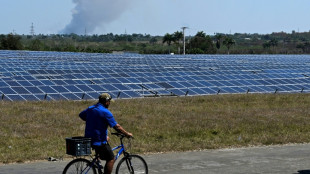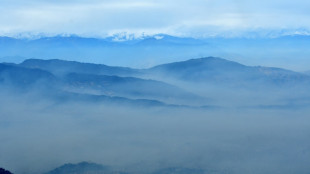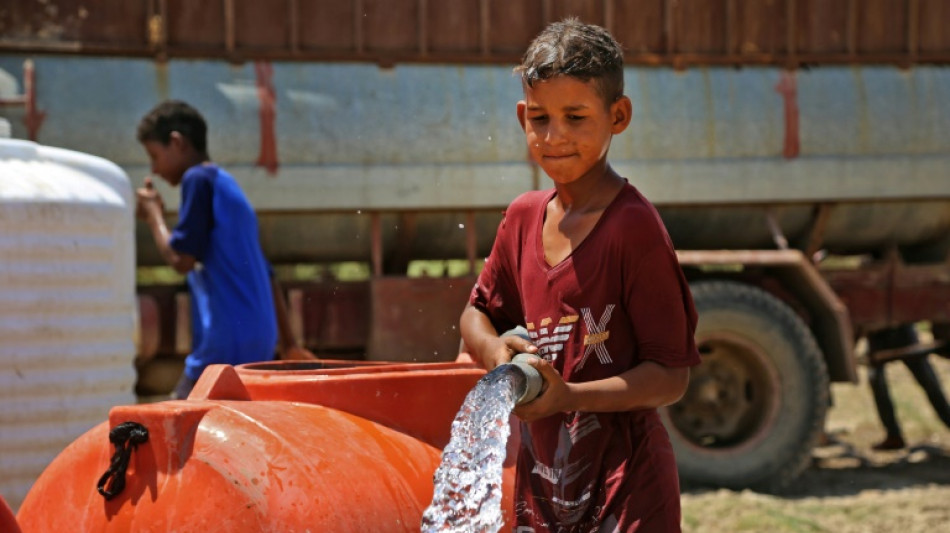
-
 De Bruyne to leave Man City at end of the season
De Bruyne to leave Man City at end of the season
-
Youthful Matildas provide spark in friendly win over South Korea

-
 Stocks, oil extend rout as China retaliates over Trump tariffs
Stocks, oil extend rout as China retaliates over Trump tariffs
-
De Bruyne says he will leave Man City at end of season

-
 UK spy agency MI5 reveals fruity secrets in new show
UK spy agency MI5 reveals fruity secrets in new show
-
Leverkusen's Wirtz to return 'next week', says Alonso

-
 England bowler Stone to miss most of India Test series
England bowler Stone to miss most of India Test series
-
Taiwan earmarks $2.7 bn to help industries hit by US tariffs
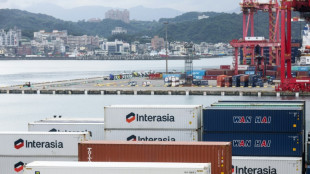
-
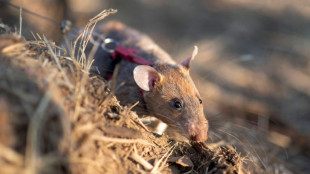 Rat earns world record for sniffing landmines in Cambodia
Rat earns world record for sniffing landmines in Cambodia
-
Elton John says new album 'freshest' since 1970s

-
 EU announces 'new era' in relations with Central Asia
EU announces 'new era' in relations with Central Asia
-
Greece nixes Acropolis shoot for 'Poor Things' director
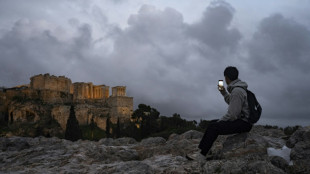
-
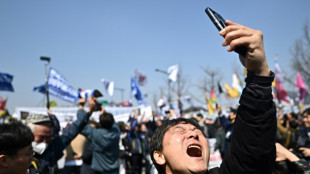 'Historic moment': South Koreans react to Yoon's dismissal
'Historic moment': South Koreans react to Yoon's dismissal
-
Israel kills Hamas commander in Lebanon strike
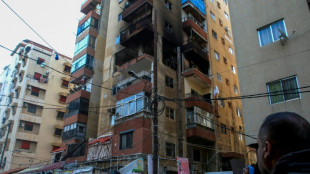
-
 Trump unveils first $5 million 'gold card' visa
Trump unveils first $5 million 'gold card' visa
-
Crashes, fires as Piastri fastest in chaotic second Japan GP practice

-
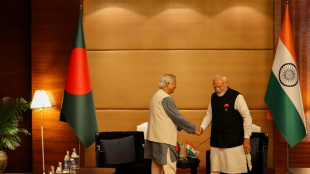 India and Bangladesh leaders meet for first time since revolution
India and Bangladesh leaders meet for first time since revolution
-
Israel expands ground offensive in Gaza
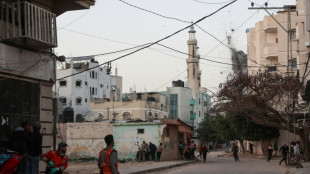
-
 Families of Duterte drug war victims demand probe into online threats
Families of Duterte drug war victims demand probe into online threats
-
Stocks extend global rout after Trump's shock tariff blitz

-
 Kolkata's Iyer more bothered about impact than price tag
Kolkata's Iyer more bothered about impact than price tag
-
BP chairman to step down after energy strategy reset

-
 Indian patriotic movie 'icon' Manoj Kumar dies aged 87
Indian patriotic movie 'icon' Manoj Kumar dies aged 87
-
China floats battle barges in Taiwan invasion plans
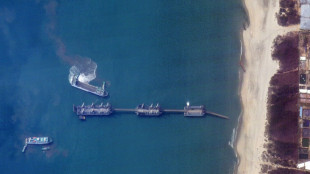
-
 McLaren's Piastri fastest in chaotic second Japanese GP practice
McLaren's Piastri fastest in chaotic second Japanese GP practice
-
South Korea seize two tons of cocaine in largest-ever drug bust
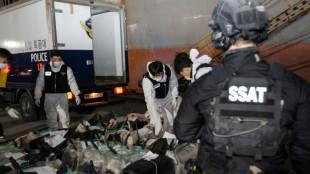
-
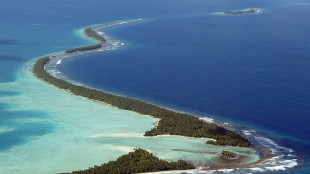 Pacific nations perplexed, worried by Trump tariffs
Pacific nations perplexed, worried by Trump tariffs
-
The race to save the Amazon's bushy-bearded monkeys

-
 TikTok must find non-Chinese owner by Saturday to avert US ban
TikTok must find non-Chinese owner by Saturday to avert US ban
-
Trump tariffs to test resiliency of US consumers
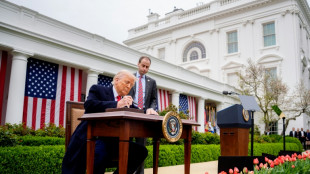
-
 Clamping down on 'forever chemicals'
Clamping down on 'forever chemicals'
-
Prominent US academic facing royal insult charge in Thailand

-
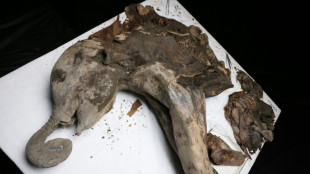 Yana, a 130,000-year-old baby mammoth, goes under the scalpel
Yana, a 130,000-year-old baby mammoth, goes under the scalpel
-
'Don't want to die': Lesotho HIV patients look to traditional medicine
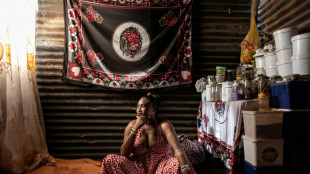
-
 Curry scores 37 as Warriors outgun LeBron's Lakers
Curry scores 37 as Warriors outgun LeBron's Lakers
-
Crops under threat as surprise March heatwave hits Central Asia: study
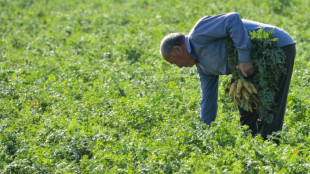
-
 Japan PM says Trump tariffs a 'national crisis'
Japan PM says Trump tariffs a 'national crisis'
-
Security 'breakdown' allows armed men into Melbourne's MCG

-
 Norris fastest in Japan GP first practice, Tsunoda sixth on Red Bull debut
Norris fastest in Japan GP first practice, Tsunoda sixth on Red Bull debut
-
Albon says Thailand taking bid for F1 race 'very seriously'

-
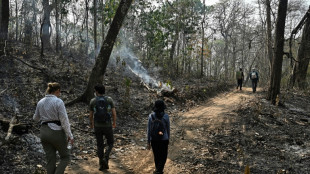 'It's gone': conservation science in Thailand's burning forest
'It's gone': conservation science in Thailand's burning forest
-
Protest as quake-hit Myanmar junta chief joins Bangkok summit
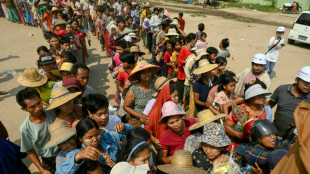
-
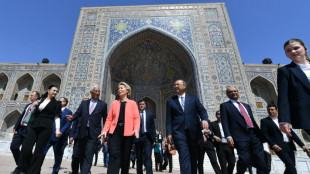 EU leaders push for influence at Central Asia summit
EU leaders push for influence at Central Asia summit
-
Asian stocks extend global rout after Trump's shock tariff blitz

-
 Lewandowski, Mbappe duel fuelling tight La Liga title race
Lewandowski, Mbappe duel fuelling tight La Liga title race
-
South Korea court upholds President Yoon's impeachment, strips him of office
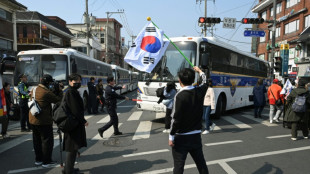
-
 Liverpool march towards title as Man City face Man Utd
Liverpool march towards title as Man City face Man Utd
-
Finland's colossal bomb shelters a model for jittery Europe

-
 Athletes frustrated as France mulls Muslim headscarf ban in sport
Athletes frustrated as France mulls Muslim headscarf ban in sport
-
Korda downs Kupcho to stay alive at LPGA Match Play


Boiling heat and no water: taps run dry in southern Iraq
Younes Ajil turns on the tap in his home but nothing comes out: dozens of villages are without running water in drought-hit Iraq, surviving on sporadic tanker-truck deliveries and salty wells.
For everything from drinking to bathing and washing dishes and clothes, Ajil and his eight children wait at their home in Al-Aghawat for trucked-in water from the Diwaniyah provincial authorities once or twice a week.
In burning summer temperatures that at times approach 50 degrees Celsius (122 Fahrenheit), he said he hasn't bathed for four days.
"Even if there were daily deliveries, there would not be enough" water, the 42-year-old said.
Iraq is known in Arabic as the Land of the Two Rivers, but it has seen water levels on the once mighty Tigris and Euphrates plummet.
The Euphrates, which passes through Diwaniyah province, has visibly contracted in recent months, with some of the river's weaker branches drying up.
Governor Zouheir al-Shaalan said "around a third" of his province has problems accessing water, with more than 75 villages affected.
Ajil has dug a well, but the water is salty.
"We mix that with the water from the trucks and make do," he told AFP.
- Climate migration -
Local children cry out and run towards an orange water truck as it drives up the dirt road in their village.
One person fills a tall white tank, climbing on top of it to hold the truck's hose as water gushes out, while others wait to fill smaller tanks or even cooking pots.
Children splash gleefully in a rusting old fridge that has been laid on the ground as a cramped, makeshift tub.
The UN classifies Iraq as the world's fifth most vulnerable country to climate change.
Authorities blame drought for the current water shortages, but also dams built upstream on some rivers and tributaries in neighbouring Turkey and Iran.
Ajil shares his house with his brother, Mohammed.
Like most of their neighbours, they used to make a living from farming.
But over the past two years, the drought has brought local agriculture to its knees, so they have been selling their sheep to survive.
There are around 50 houses in the village, Ajil said, but only 10 families remain.
"The rest have left," he said. "If there is no water, there is no more life."
A report published this month by the International Organization for Migration in Iraq said that "climate migration is already a reality" in the country.
More than 3,300 families across 10 provinces in the country's centre and south were displaced due to "climate factors" as of March this year, the report said, blaming water scarcity, high salinity and poor water quality.
- 'Farming is our lives' -
Hassan Naim, who manages Diwaniyah's water resources, said around 20 treatment plants were at a standstill.
Before, "some rivers ran dry, but only for a matter of days", he said.
The present crisis has been going on for more than two months.
Naim acknowledged that authorities were distributing a "very low" amount of water compared to what was needed, but cautioned against using high-salinity well-water.
Diwaniyah Governor Shaalan said that to end the shortages, the province needed to receive double the current water flows of 85-90 cubic metres (3,000-3,200 cubic feet) per second along the Euphrates.
"Diwaniyah has no border crossings, oilfields, religious sanctuaries or tourism" to generate income, he said, urging authorities in Baghdad to exclude the province from the federal government's water rationing plan.
"Farming is our lives," he said.
Hundreds of angry Diwaniyah residents have twice taken to the streets to protest the situation.
Al-Aghawat resident Razzak Issa believes a deal with Turkey, the source of the Euphrates, is needed to increase water supplies.
"Yes, we can ration usage, but it's hot. How am I supposed to ration? I don't bathe? I don't wash my clothes? I don't bathe my children? It's impossible," he said.
He too mixes salty water from his well with the trucked-in water from the authorities.
"Where can we go?" he said. "Everywhere in Iraq is "torture".
G.Stevens--AMWN
